An Unvarnished View of Peacekeeping
As someone who has served in various peacekeeping missions, I've seen first-hand the delicate balance between conflict and peace. Watching the sunrise over a previously war-torn village brings a daily reminder of the fragile state we help secure. Each shaky step towards stability is paved with challenges and triumphs—ones that demand from us patience, bravery, and an unwavering commitment to principles of neutrality, impartiality, and non-violence.
The heart of peacekeeping is rooted in optimism—believing that, despite past atrocities, reconciliation is possible. In the silence that follows the ceasefire, peacekeepers serve as guardians of hope. Yet, it is a hope tinged with the sobering reality of what has passed and what continues to loom on the horizon. Engaging with local communities, we become intertwined in their narratives, a witness to their resilience and an architect of their recovery.
The Complex Landscape of Conflict
Within the tapestry of global conflicts, no two threads are the same. Complex socio-political dynamics, historical grievances, and divergent interests often fuel these hostilities. Navigating through this intricate web requires more than military prowess—it demands an acute understanding of the underlying issues and an ability to foster dialogue among stakeholders. As peacekeepers, our role stretches beyond maintaining a buffer; it's about understanding the context, the power dynamics at play, and the potential paths to sustainable peace.
In one mission, I realized how even the minutest cultural misunderstandings could undermine months of progress. It's the subtleties—a misunderstood gesture, a misinterpreted phrase—that can quickly unravel the fabric of trust we painstakingly build. Thus, cultural literacy becomes as crucial as any security measures we put in place. In the trenches of diplomacy, it's our cultural dexterity that often paves the way for successful mediation.
The Humanitarian Aspect of Peacekeeping
Peacekeeping is not void of humanity—it thrives on it. Beyond the checkpoints and patrol routes, there are lives constantly caught in the crossfire of conflict. Providing humanitarian aid, ensuring the protection of civilians, and facilitating the delivery of essential services, form the bedrock of our mission's values. I recall the profound sense of purpose I felt when providing medical assistance to a child or ensuring safe passage for a convoy of food supplies.
However, the impact of this work rarely makes headlines. It unfolds quietly in the daily efforts of those committed to serving others amidst uncertainty. It's in the small victories—the reopening of a school, the laughter of children playing in a rebuilt park, the gratitude in someone's eyes when they receive a meal—that the true essence of peacekeeping comes to light. These humanitarian successes are the lifeblood of our work, sustaining both communities and peacekeepers through challenges.
Rebuilding After the Conflict
Once the guns fall silent, the real task begins: rebuilding lives, infrastructures, and governance. As peacekeepers, we often find ourselves involved in facilitating the reconstruction of societies ravaged by conflict. We liaise with international organizations, aid in the disarmament, demobilization, and reintegration of ex-combatants, and sometimes help in organizing free and fair elections. The journey to normalization is levered by every stable institution and rule of law we help reinstate.
The path to prosperity is long and complex. It's a path that often requires peacekeepers to undertake roles as advisers, trainers, and supporters of local and national efforts. We have seen the fruits of these labors, be it through a restored public service or a successfully mediated community conflict. Each step toward reconstruction is a stepping stone for a future free from the specter of violence.
The Impact of Peace on Peacekeepers
Serving in peace operations leaves an indelible mark on those who wear the blue beret. The experiences shape us, chisel out new perspectives, and test the mettle of our convictions. Inevitably, one carries pieces of each mission home—the cherishment of peace, the understanding of human resilience, or the pain of witnessing suffering. These experiences expand our worldview and reinforce the conviction that, despite its flaws, peacekeeping is a vital endeavor for global stability.
Moreover, peacekeeping presents an intersection of intense professional growth and profound personal transformation. The lessons learnt in leadership, negotiation, empathy, and resilience are invaluable in both the field and life beyond. The solidarity formed amongst comrades, the shared hardships, and collective successes, forge bonds that transcend borders and conflict lines.
Challenges and Adaptation in Peacekeeping Operations
Criticism and challenges to peacekeeping operations are plentiful. Issues range from bureaucratic inefficiencies and inadequate resources to more serious allegations of misconduct. However, the essence of peacekeeping adapts, evolves, and strives to surmount these hurdles. Reforms are underway, aiming for greater accountability, improved training, and stronger mandates that are sensitive to the complexities of modern conflicts.
Technological advancements and innovations have also begun to reshape peacekeeping. Cutting-edge tools aid in intelligence-gathering, improve the safety of personnel, and enhance our ability to protect civilians. We are utilizing these tools to refine our strategies, learning from setbacks, and addressing the needs of those we serve more effectively.
Peacekeeping's Role in the Shaping of International Relations
On the broader canvas, peacekeeping serves as a decisive force in international relations. It reflects our collective aspiration for a world governed by laws, not force. Peacekeeping missions have offered countries the opportunity to collaborate in service of a higher calling, fostering diplomatic relations and broadening mutual understanding. This collaboration has given smaller nations a voice and an active role in the pursuit of global peace.
The footprint of peacekeeping is significant and often underrated. Through consistent efforts, peacekeeping forces have not only saved lives but have also contributed to the fabric of international law and cooperative security. In a world where interconnectedness dictates the ebb and flow of power, peacekeeping stands as a testament to the power of collective action and the enduring pursuit of a harmonious global society.
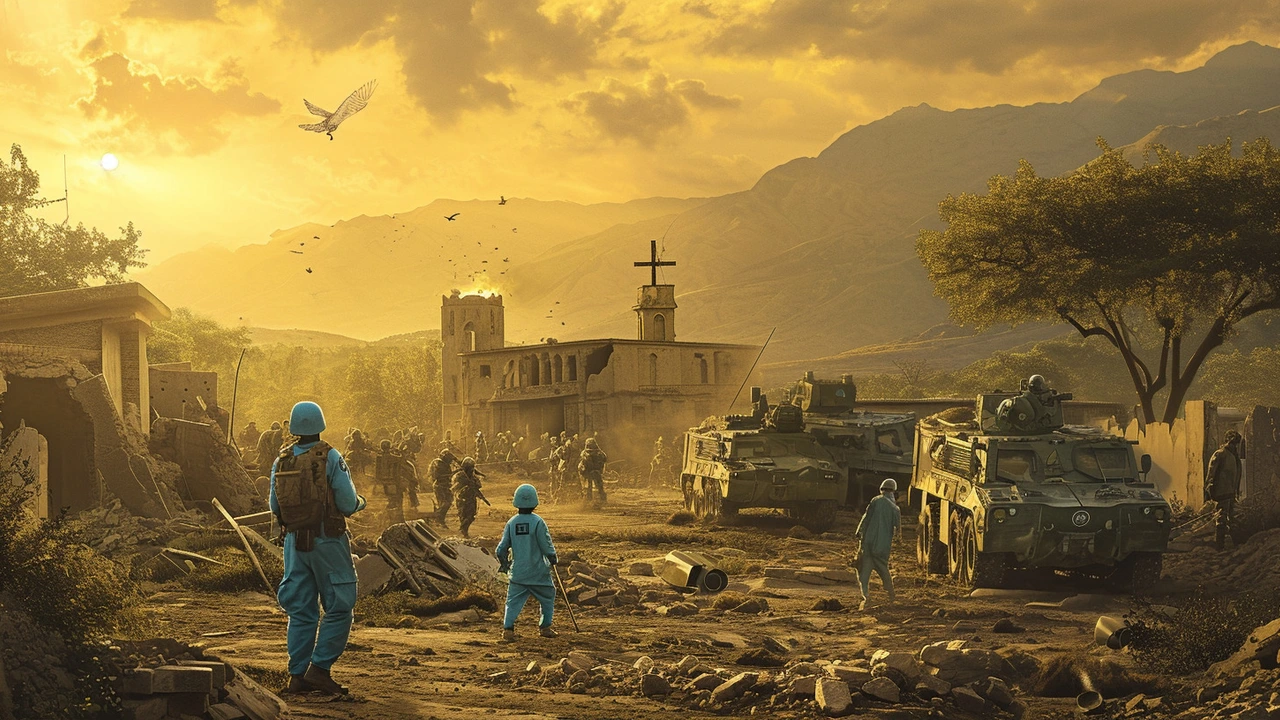

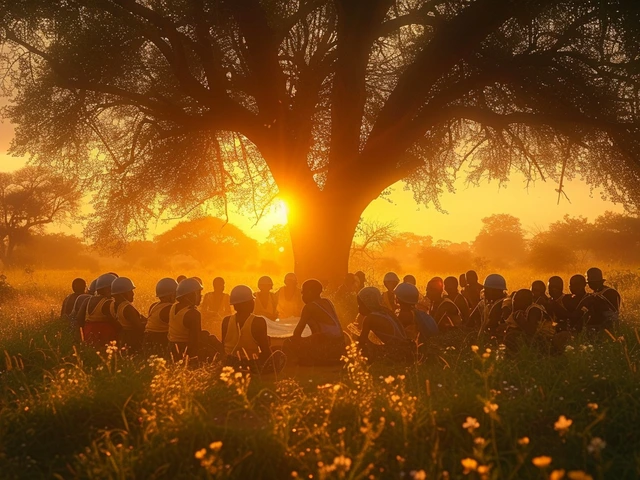
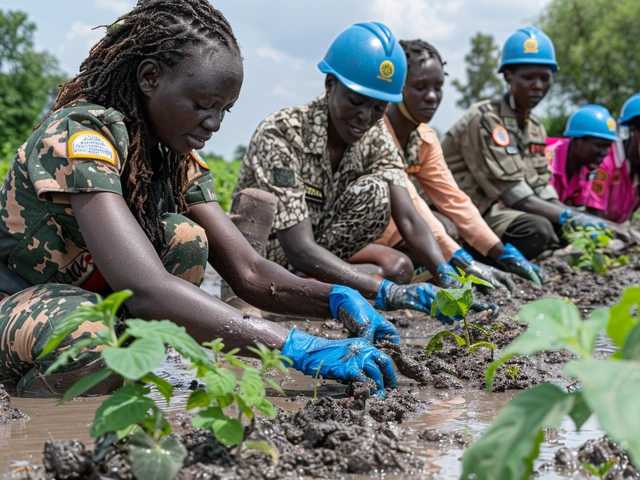
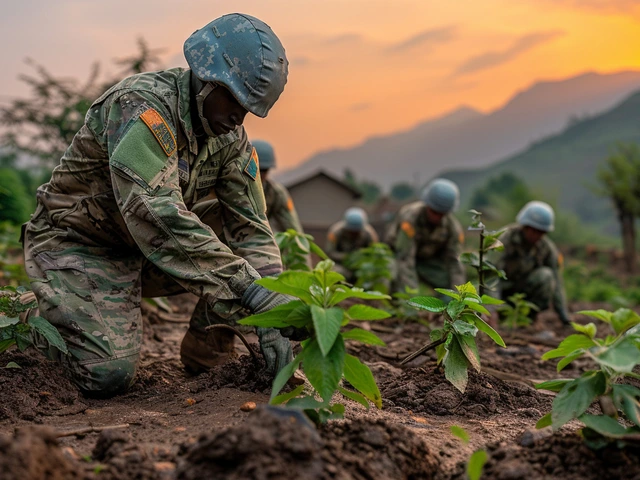
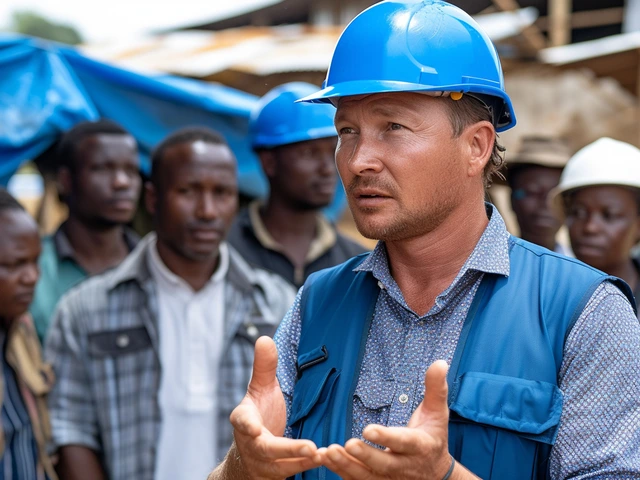

Write a comment